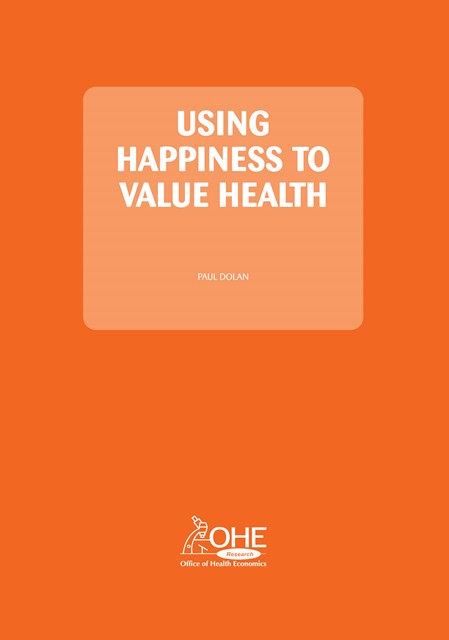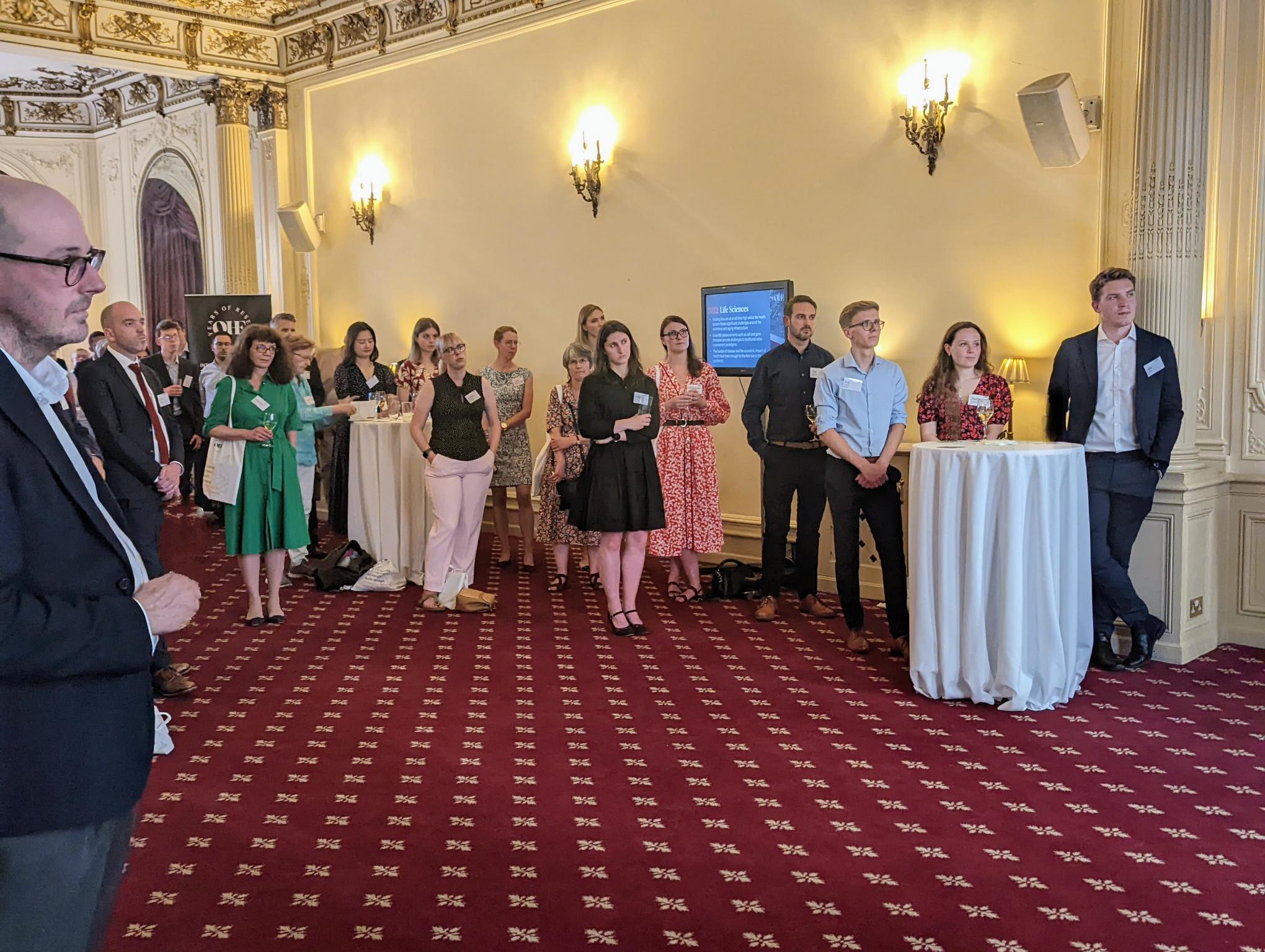Sign up to our newsletter Subscribe
Analysing Global Immunisation Expenditure

Sign up to our newsletter Subscribe


OHE’s invitational lunchtime seminar held March 14th featured the research of Prof Paul Dolan of the LSE on using measures of subjective wellbeing – “happiness” – as the bases for health care resource allocation decisions. OHE’s invitational lunchtime seminar held…

OHE’s invitational lunchtime seminar held March 14th featured the research of Prof Paul Dolan of the LSE on using measures of subjective wellbeing – “happiness” – as the bases for health care resource allocation decisions.

OHE’s invitational lunchtime seminar held March 14th featured the research of Prof Paul Dolan of the LSE on using measures of subjective wellbeing – “happiness” – as the bases for health care resource allocation decisions. Prof Dolan’s basic argument is that current measures of gains in health related quality of life, such as QALYs, are incomplete because they do not measure the end result that everyone desires, which is a feeling of wellbeing. If that is indeed the goal of society, then money is best allocated to those services that provide the greatest amount of happiness. (Prof Dolan has summarized his research in a recent OHE publication, available on this website.)
With respect to health care, this could mean spending relatively more on helping improve the mental states of individuals than on their physical status. So, for example, a group of patients who find it difficult to cope with a chronic illness might be allocated relatively more resources, aimed specifically at improving a sense wellbeing, than another group of patients who are coping well.
Following Prof Dolan’s explanation of the concepts, participants engaged in a wide-ranging discussion of the implications of increasing the emphasis on happiness measurement. Most agreed that happiness measurement clearly could apply to allocating resources across sectors – e.g. housing v. social care v. health care — and also be useful in evaluating individual health technologies or treatments.
Download Dolan, P. (2011) Using happiness to value health. London: Office of Health Economics.
An error has occurred, please try again later.
This website uses cookies so that we can provide you with the best user experience possible. Cookie information is stored in your browser and performs functions such as recognising you when you return to our website and helping our team to understand which sections of the website you find most interesting and useful.
Strictly Necessary Cookie should be enabled at all times so that we can save your preferences for cookie settings.
If you disable this cookie, we will not be able to save your preferences. This means that every time you visit this website you will need to enable or disable cookies again.
This website uses Google Analytics to collect anonymous information such as the number of visitors to the site, and the most popular pages.
Keeping this cookie enabled helps us to improve our website.
Please enable Strictly Necessary Cookies first so that we can save your preferences!
